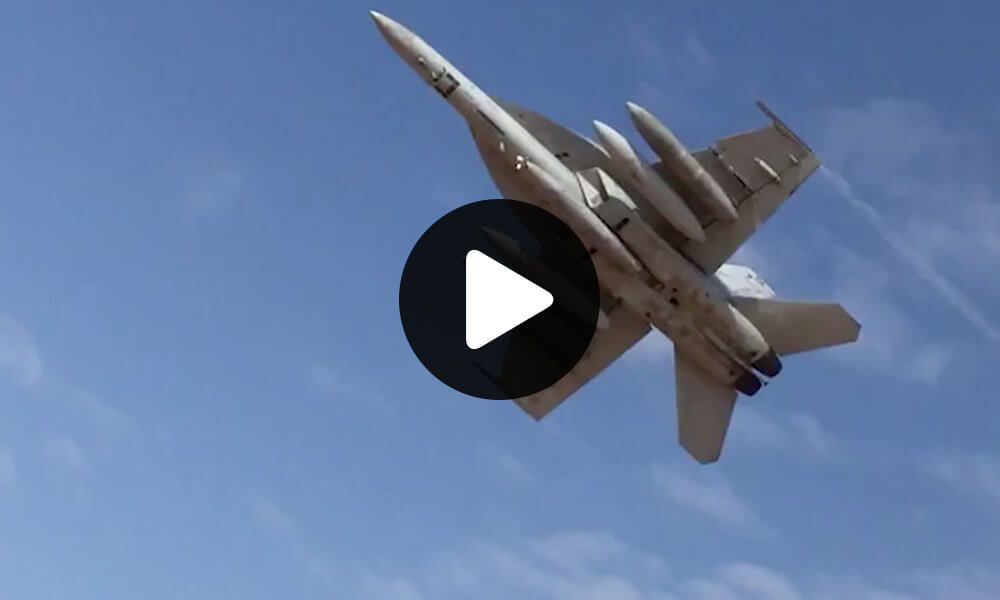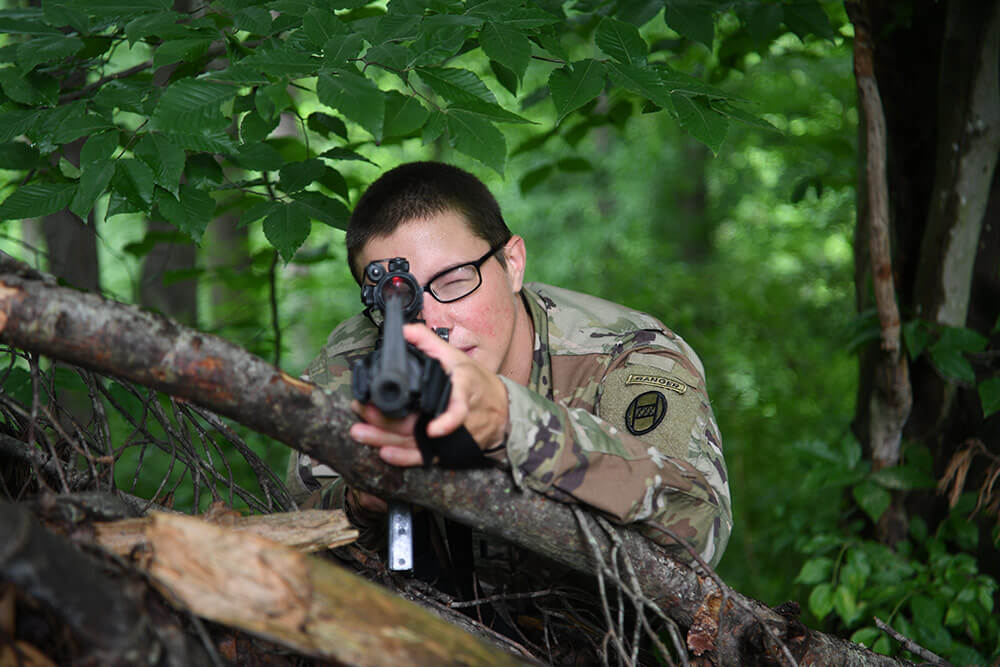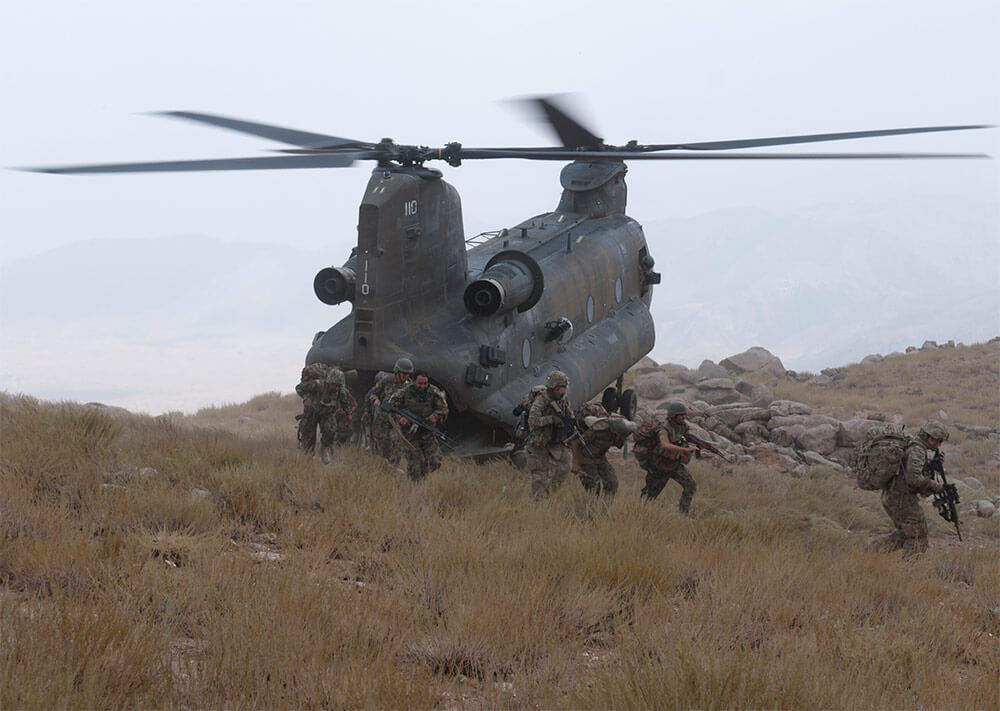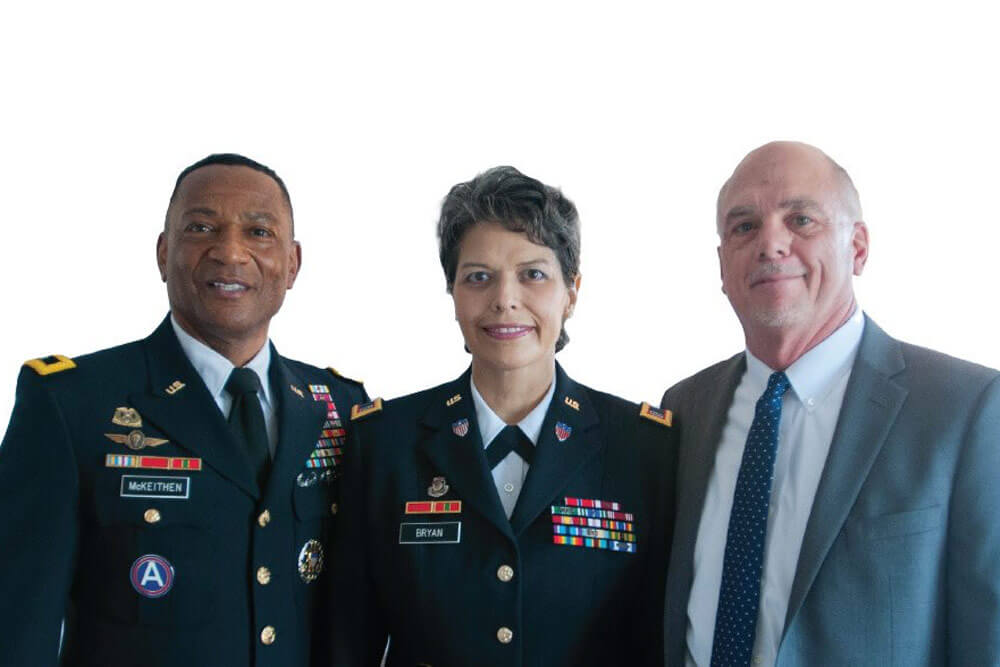More Interoperability in Morocco
Held this past April, Exercise African Lion 18 was a Chairman of the Joint Chiefs of Staff-sponsored, U.S. Africa Command (AFRICOM)-scheduled, U.S. Marine Corps Forces Europe and Africa-led, joint and combined exercise conducted in the Kingdom of Morocco with a spoke in Tunisia.
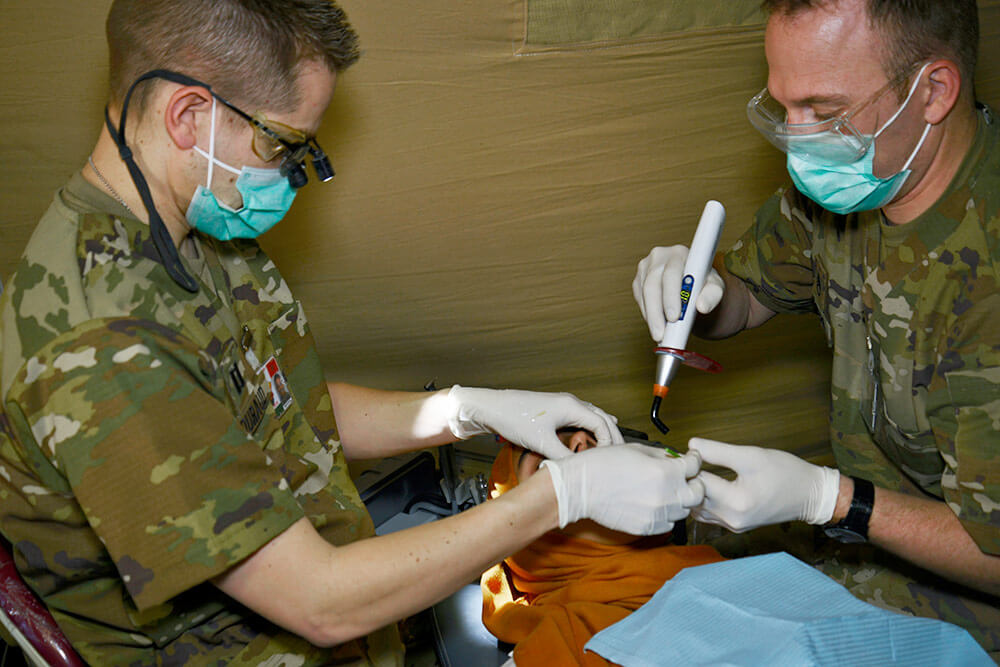
The two-week exercise provided training and promoted interoperability between the United States and Moroccan forces. Approximately 900 U.S. service members worked alongside 400 members of the Royal Moroccan Armed Forces for the annual exercise. The training also included 250 members of the Tunisian Armed Forces plus armed service members from Canada, France, the Federal Republic of Germany, Great Britain, Greece, Italy and Spain.
Participating U.S. military forces included units from the Utah Army National Guard; Colorado, Georgia and Utah Air National Guards; active duty Army; U.S. Marine Corps; U.S. Marine Corps Reserve; U.S. Navy and U.S. Air Force.
African Lion 18 consisted of several training missions completed throughout Morocco. These missions included military training in command-post activities, academics, field training focused on countering violent extremist organizations, aviation training, a senior leader dialogue and humanitarian civic assistance (HCA) training.
The Utah Army National Guard Medical Command was responsible for the HCA component of Exercise African Lion 18. Soldiers from the Utah Medical Command worked from a mobile hospital, established and run by the Royal Moroccan Army Medical Battalion, in the small, rural town of Bounaamane, located in the Tiznit Province.
“We came in as [part of] an interoperability and a mutual collaboration effort to help the people in this particular area [of Bounaamane],” MAJ Samantha Madsen of the Utah Medical Command explained.
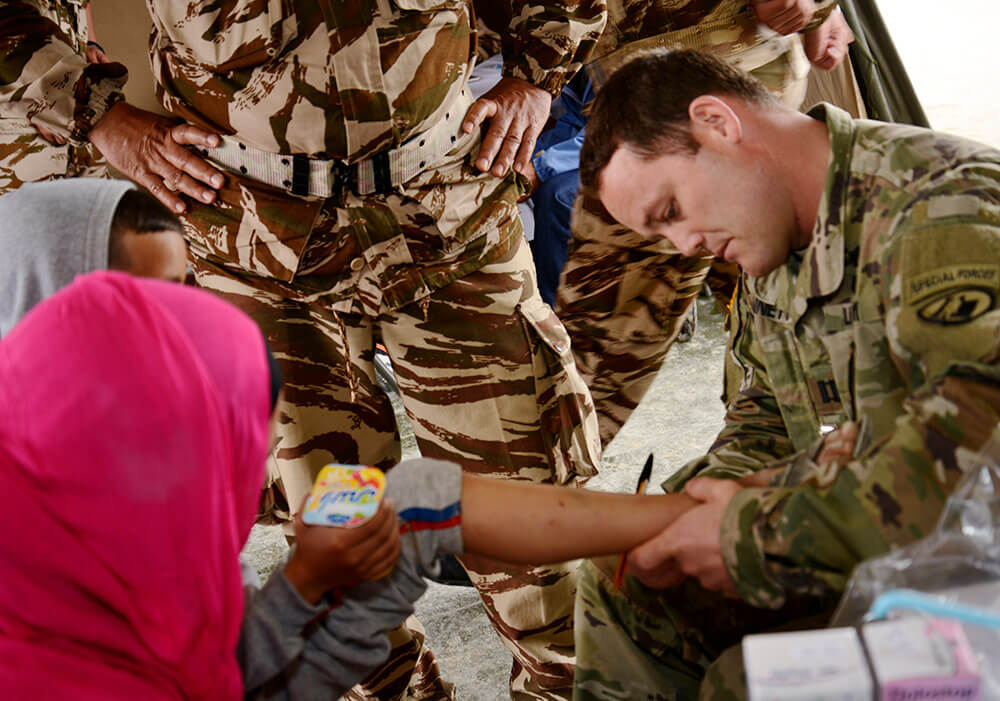
Since 2003, the Utah National Guard has partnered with Morocco as part of the National Guard’s State Partnership Program (SPP), and the Department of Defense has recognized Morocco as one of the Nation’s steadfast partners in the effort to defeat the Islamic States of Iraq and Syria. Annual events, like African Lion, serve to both strengthen those partnerships and offer opportunities to improve mutual understanding of each other’s military tactics, techniques and procedures.
“Morocco has been a long-standing ally of the United States,” said MAJ Martin Kerbo of the Utah Medical Command. “It is important to keep [good] relationships between us and our [SPP] partner. It deepens our bond with them. I wish we could do it more often, but the exercise only happens once a year. It gives us the opportunity to assess our mission-essential tasks as well as foster camaraderie with our [partner] nation.”
While camaraderie is an important component of any partnership, Exercise African Lion was not solely about building relationships. Participants had plenty of opportunity to gain new knowledge and develop vital skills.
“There’s a training exchange for both sides,” said MAJ Madsen. “It’s an opportunity for the Guard to go in and put into practice what we have [previously] trained on.”
During the two-week exercise, the Utah medical Soldiers not only enhanced their capabilities and developed their relationship with their Moroccan counterparts, they also helped to treat more than 6,000 patients in Bounaamane.
With a 14-bed recovery area, x-ray and ultrasound machines plus a blood work lab, the mobile hospital in Bounaamane was fully equipped to offer medical services to both children and adults. The hospital provided general medicine services, ear-nose-and-throat services, internal medicine services, gynecological services, pediatric services plus dental, optometry and psychiatric services. Exercise participants issued eyeglasses and performed root canals, fillings, cleanings and tooth extractions. They conducted cataract surgeries, gall bladder removals, hernia repairs and fatty benign tumor removals.
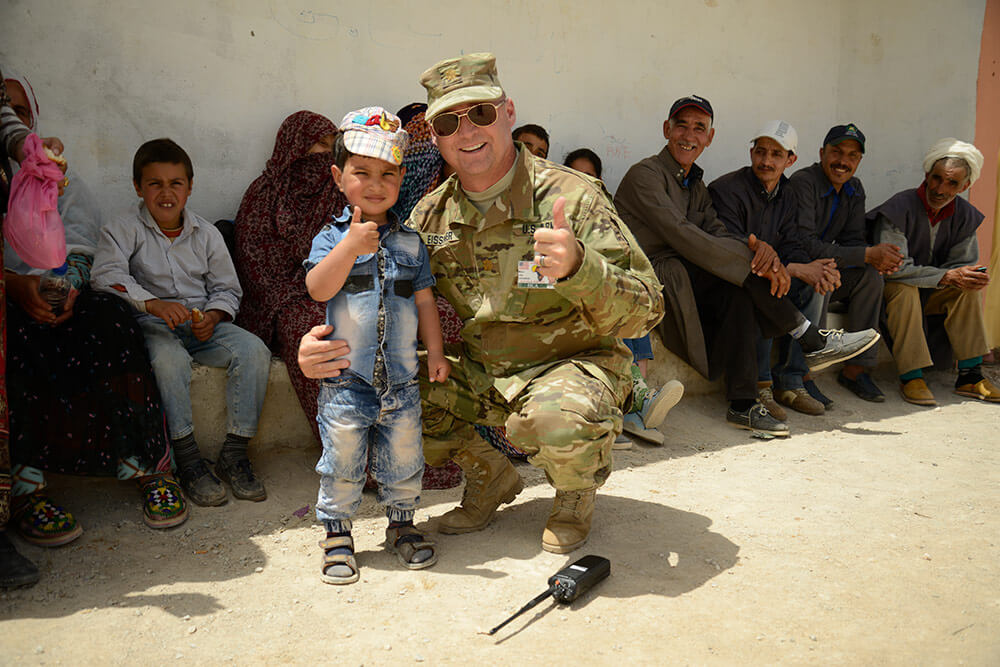
“It was a very successful exercise,” MAJ Kerbo said. “We helped an underprivileged, underserved population while our commander was able to assess our ability to integrate with Moroccans and provide medical service. It also placed us in an austere environment and helped our commander observe our ability to complete mission-essential tasks.”
With differences in language and procedures, the exercise presented a few challenges. However, according to MAJ Kerbo, the collaboration between the two forces allowed for those challenges to be easily alleviated.
“The language barrier was the toughest, but it was easily overcome,” MAJ Kerbo explained. “[The Moroccans] had the same common operation picture. [It can be difficult] when you all speak the same language and you are dealing with similar, but different doctrine. When you add in the twist of the language barrier, it can be somewhat challenging.”
This was especially true concerning medications for patients. Because of the differences not only in language, but also in the variances of medications in Morocco, interpreters were utilized and extra steps were taken in order to safely treat patients.
“Some of the drugs that [Moroccans] use are not approved in the United States,” explained MAJ Madsen. “That’s not necessarily a bad thing. The U.S. approves one form of a drug and another country may approve a different form of the drug. But all of the language inserts and packaging were in French. When trying to determine proper dosing, especially with children because the form is different, it takes more time. It’s important that you get it right.”
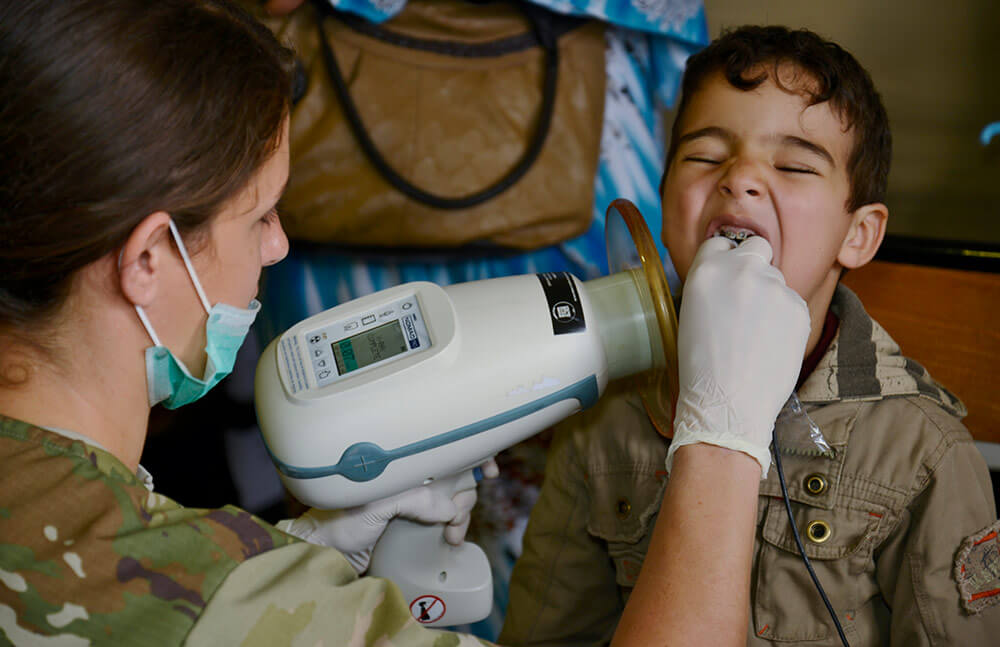
MAJ Madsen was impressed with the overall efficiency of the medical operations, despite their complexities.
“The pharmacy we had there would sometimes be lacking something specific that a patient needed,” MAJ Madsen said. “But the Moroccans were very good about responding to medication needs. If you think about the chain of supply and all that is involved to get medicine into the patient’s hands – from the physician, to the pharmacy, to the American leadership, to the Moroccan leadership, the government and hospital funding for medication – it’s a lot. The turnaround time was very fast and that was really impressive.”
The leadership coordination between the United States and Morocco most impressed MAJ Kerbo.
“Anytime you have leadership work together, there’s always little rough spots you have to get over,” he said. “I think for the most part, the standout was how well the leadership worked together for a common goal, which was not only for us to [display] the ability of the units to perform a mission, but also to provide medical services to the people of Tiznit.”
The minor challenges Exercise African Lion presented allowed Soldiers to grow and become more efficient in their tasks. These experiences also allowed the Utah Guard Soldiers to build upon the relationships they had previously formed with their Moroccan partners.
“Relationships are what help us to be good neighbors,” explained MAJ Kerbo. “Without those relationships, it would be difficult to perform missions like this where people are provided medical care. We were able to work and overcome training challenges that are associated with performing missions within [another] country. When we have those obstacles like language, perception of how things should be done and different doctrines, [having relationships] helps us maintain our adaptability and versatility and it also helps us to hone our skills.”
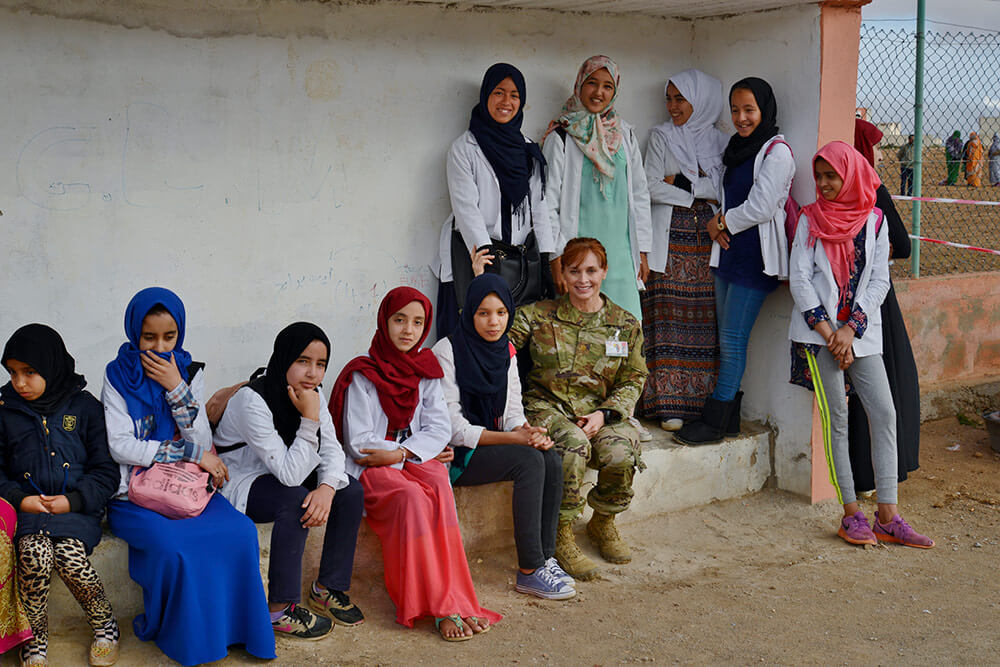
Having participation from Soldiers with a wide range of backgrounds, skill sets and years of tenure, African Lion 18 presented a unique environment that allowed for heightened levels of learning across specialties.
“You had some of our folks who had never been involved in an exercise like this, and then we had some who had been two or three times,” commented MAJ Madsen. “There was great cross training between the medics. They were learning new skills and had an opportunity to put into practice some of the things they probably would not get elsewhere. Someone who may normally do vitals, may have gotten to work in a dental tent as an assistant. They loved that.”
At the end of the day, one of the most important outcomes of any multinational exercise is the serving and protecting of the people of our allied nations. That fact was not lost on these Utah Guard Soldiers.
“The difference we were able to make was my favorite aspect of the exercise,” said Utah Medical Command’s SSG Jennifer Brady. “The kids were excited to get certain issues taken care of that they had been dealing with for some time. That was great to see. I enjoyed the changes we were able to bring about with the providers there.”
MAJ Madsen emphasized the value of the bonds formed between the United States and Morocco as a result of Exercise African Lion 18.
“To be able to go in and help an underserved population and to see how grateful they were – that was [amazing],” said MAJ Madsen. “The relationships that developed between some of the Americans and the Moroccans was also great. We were in close proximity when performing these exercises and everyone worked together so well. It was very impressive to see. I really think that some of those relationships may last a lifetime.”
BY STAFF WRITER Tatyana White-Jenkins
